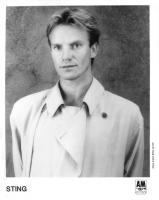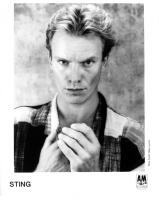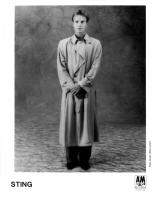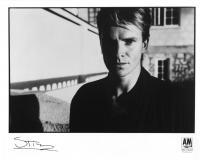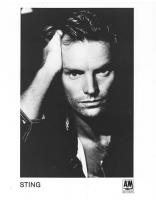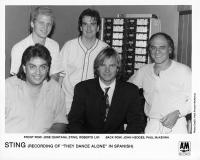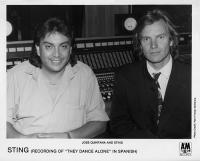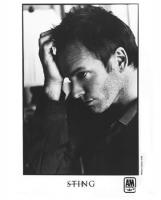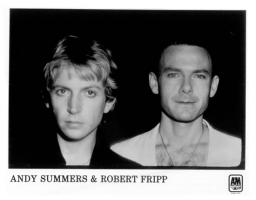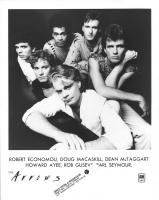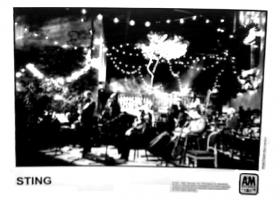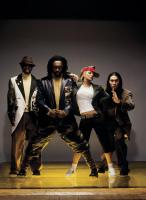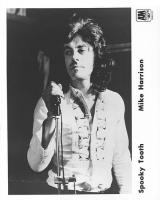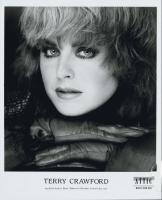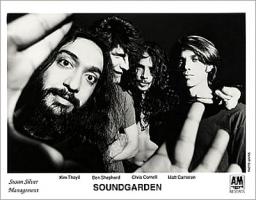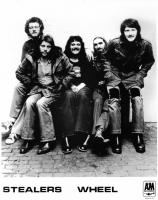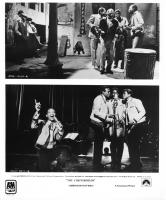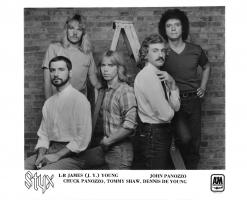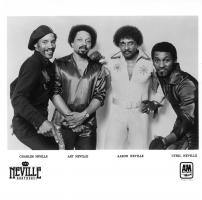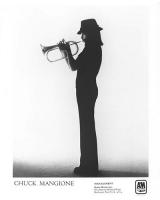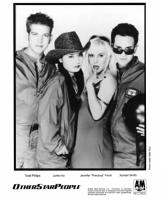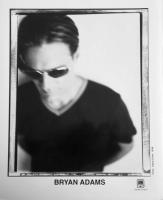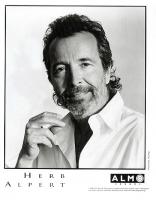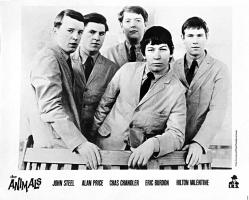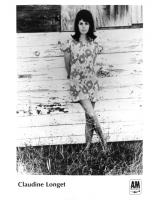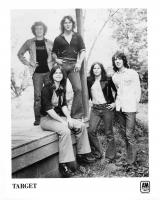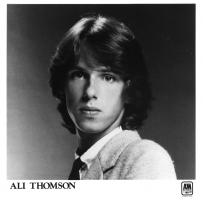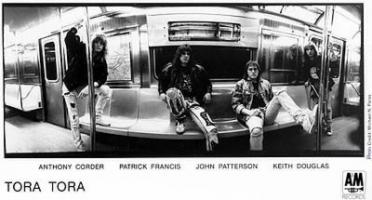Sting
"The first solo album by Sting meant a lot to me. It was a natural continuation for him after leaving the Police; he didn't seem lost without them, but confident in what he could do. On 'The Dream of the Blue Turtles', he surrounded himself with great players like Branford Marsalis. The sound represented his approach to being freer musically, and not confined in a rock group. Sting needed that freedom – and his numbers were even more successful as a solo artist."--Herb Alpert
"My interest in music is very broad, and I'm not interested in trying to make a pure music form like jazz or rock 'n' roll, or blues or folk. But I like all of these musics, and I'm more into trying to create something new out of those elements. I've recruited musicians over the years who have been at home playing classical music as well as rock 'n' roll and jazz, so they could move freely and effortlessly from one style to another. That's the game we're playing. It's like a modular system. My musicians clearly know what the game is, which is chaos, I suppose."--Sting (Boston Globe, February 28, 1993)
"What I've learned over the years is that miracles don't happen at all. It's that happens and process that gets results, and process day to day--dogged, determined work. Not miracles."--Sting (Boston Globe, February 28, 1993)
"I ended up at the age of fifteen, sixteen, playing with guys, beatniks, who had been playing since the fifties...I would do anything to play, and rather than learn Led Zeppelin riffs, as people my age were doing on guitar, I was learning how to play jazz standards. I was in a dance band, a mainstream jazz band."
"Being brought up on jazz, I was locked out when I started going around to record companies. I went to every major record company with my songs, and they all said I wasn't commercial enough. That is what really made me feel a rapport with the punk movement. Although the music was a little shallow, the anger and sense of wanting to revolutionize the music industry was something I felt strongly about. So the Police flew that banner for awhile.
"On my own it's been very interesting. Jazz is still important to me. Not as something that is a religion, but I like it. It is not what I do now, even though I play with jazz musicians. I hope the music we make can't be labeled. My whole point about music is that labeling is limiting. It prejudices people. As soon as you introduce a name, a type of music, you introduce a preconceptions. My whole crusade at the moment is confounding stereotypes. I have records on the charts that shouldn't be there. They aren't formula. They aren't programmable. I have a single called "Englishman in New York." which has a jazz section in it, and then a hip-hop section. The contemporary hit radio format--they don't like jazz, they don't like hip-hop. It is against their formula. But because it is my record they have to take it seriously. They can reject it or play it, but they have to decide. They can't just throw it away, and I find that interesting."
In 1984 "Every Breath You Take" won the Grammy for Song Of the Year and the National Music Publishers Association named it their song of the year and easy listening song of the year..
THE DREAM OF THE BLUE TURTLES (1985)
In May 1985, A&M Records Canada shipped its first ever gold single "If You Love Somebody Set Them Free." The initial shipment was 70,000 copies. Dream of the Blue Turtles shipped platinum in Canada.

Back to school. A&M Records Canada invited students to draw blue turtles for its presentation of the CRIA platinum album for Dream Of the Blue Turtles at the school. Jim Monaco (Publicity), JP Guilbert (Promotion), Gerry Lacoursiere (President), Bill Ott (Sales), STING, Pat Ryan (Ontario Promotion), Michelle Henderson (Marketing), Joe Summers (VP Sales & Marketing), Michael Godin (A&R)
In 1985, Sting won a Golden Reel Award from Ampex Corp.'s Magnetic Tape Division because his Dream of the Blue Turtles album was recorded and mixed on Ampex 456 pro audio mastering tape. The album also won the German equivalent of a Grammy, the Schallenplattenpreis for best pop/rock male performance.
On March 28, 1986 the film "Bring on the Night" was released for home video distribution with a price of $79.95. The double vinyl album was initially released only in Europe. The decision not to release in the U.S. was made by Sting's manager, Miles Copeland.
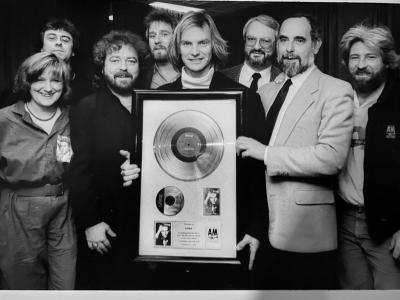
Nothing Like the Sun, Toronto. Platinum award presentation after sold out shows. Nichole Duchesne (publicity), Kim Turner (manager), JP Guilbert (national promotion), Geoff Kulawick (special projects), Sting, Bill Ott (sales), Gerry Lacoursiere (president), Randy Wells (national promotion)
...NOTHING LIKE THE SUN (1987)
For 1987's ...Nothing Like the Sun album, Sting recorded more than 20 songs. The album was released as a single CD and single cassette but as a double vinyl album. The vinyl album retailed for $10.98. Sting told Steve Gett, "I just couldn't see how to reduce it further to make a 40-minute album. The whole thing had a balance, and I didn't want to edit any further."
A&M promoted the album extensively on MTv and CNN with television ads. MTv received the ads a week before the album release on October 13, 1987 and CNN during the release week. In week three, they went back to MTv. The timing of the album's release was to make the most of holiday sales. A&M had a goal that the album would be in the Top 10 or Top 5 by Thanksgiving.
By the release date there were videos made for the first two singles "We'll Be Together" and "Be Still My Beating Heart."

Sting with J.P. Guilbert promoting Brimstone & Treacle
The Spanish version of ...Nothing Like the Sun came from A&M Records Latin Division. They felt several tracks had a Latin influence. When Sting agreed to record in Spanish, the lyrics were translated and he sang them phonetically. The EP was released February 16, 1988.
In 1988, Sting with Miles Copeland and Christine Reed formed Pangaea Records. The label licensed recordings and signed its own artists. To be signed, two of the three founders had to agree. Of the venture Sting said, "We want to offer an opportunity for people...who don't fit into formulas....For me, the excitement comes when one music form meets another. It's in that interface where innovation happens. This label will reflect our philospophy that there are no clear dividing lintes between music forms."
THE SOUL CAGES (1991)
The Soul Cages was released in early 1991 with only 200,000 copies in the traditional CD 6 x 12-inch longbox. After February 1,it was available in hewer packaging, Digi-Trak, a 5 x 11-inch cardboard package that consumers could fold to the size of a CD jewel box.
Sting was the first foreign artist to have an album enter the Italian music chart at #1. Polydor invested more than $1 million in television spots and print advertisements to market The Soul Cages.
TEN SUMMONER'S TALES (1992)
Sting told Steve Morse of Ten Summoner's Tales, "I didn't want to write about myself this time. I just wanted to write about other people. I really wanted to get away from the idea of a confessional, therapeutic record. I had just done one--and felt better because of it--so why do it again? I wanted to reach a new plateau and move on from there. I only needed to amuse myself, and engage or amuse the band; that was all I needed to do. I had a great time. I wasn't dredging up some terrible personal trauma in order to create."
Ten Summoner's Tales was recorded in Sting's dining room. The album was loosely based on The Canterbury Tales. Sting's given name Sumner comes from the medieval Summoner, one of the characters in The Canterbury Tales. The album sold 1.9 million copies in 1993.

A shipment of 700,000 copies of Ten Summoner's Tales was stolen in Italy. It was the first theft of an A&M album. The albums, of course, had no way to be identified once the record went into release.
In Japan, the album's initial shipment was 100,000 copies. Tales was a gold album on its release day March 1, 1994. Nine months later, it sold 190,000 copies. The album contained an extra track with "Everybody Laughed At You." Japan also imported the album and that version sold 30,000 copies by February 1994.
Sting performed "Every Breath You Take" on the Ally McBeal television series.
Sting's "Desert Rose" video was used in the Jaguar S-type television commercials. Miles Copeland pitched the idea to Jaguar.
Sting based his song "All This Time" on a Bach cello suite.
"All For Love" with Bryan Adams and Rod Stewart was the only #1 sting had on the Billboard Hot 100.
In July 1993, Sting's concert in Catanzaro, Italy was cancelled when the police chief decided that "Sting's music, lyrics, and performance are liable to induce...violent behavior." Sting's response was, "There are violent scenes in the opera Tosca, but no one has dreamed of accusing Pvarotti of inciting violence."
FIELDS OF GOLD: THE BEST OF STING 1984-1994
A&M Records wanted this compilation album because it marked ten years since Sting left The Police. The twelve previously released tracks were remastered and two new tracks were added. "Fortress Around Your Heart" was a remix. "Why Should I Cry For You" is the single remix. "We'll Be Together" is the original take that was not released before. "Fragile" never charted. Both "Fragile" and "They Dance Alone"were mainstay songs in Sting's concert set list. The original CD was priced at $16.98 and the cassette at $10.98.
Promotion included a 30-second television spot that ran for the first month of release. Radio received "Nuggets From Fields Of Gold," a 5-song sampler with "Fortress Around Your Heart," "When We Dance" (edit and album versions), "We'll Be Together" and "If I Ever Lose My Faith In You." Clubs and Top 40 radio received a promotional 12-inch with four versions of "If You Love Somebody Set Them Free," an edit of "When We Dance" and a mix of "Demolition Man."
In versions of the package for markets outside the U.S. and Canada "Love Is the Seventh Wave" was included.
The Fields Of Gold home video contained clips of all the songs on the album plus solo versions of "Demolition Man," "Bring On the Night" and "It's Probab;y Me." It was the first time eight of the videos were released commercially. The video sold for $19.95 and the laser disc for $29.95.
A promotional video of "When We Dance" was sent to video outlets.
OFFICIAL PROMOTION BY A&M RECORDS
Bring On the Night sellsheet
Mercury Falling press release
Mercury Falling press release
The Soul Cages press release
Sacred Love DVD-audio sellsheet
25 Years press release
Brand New Day press release
Sting biography 1985
Sting biography 1991
Sting biography 1996
Sting biography 2003
Official website: https://www.sting.com
A&M Records' Greatest Hits. Matt Diehl. Rolling Stone, September 7, 2012.
Official autobiography: Broken Music: A Memoir

